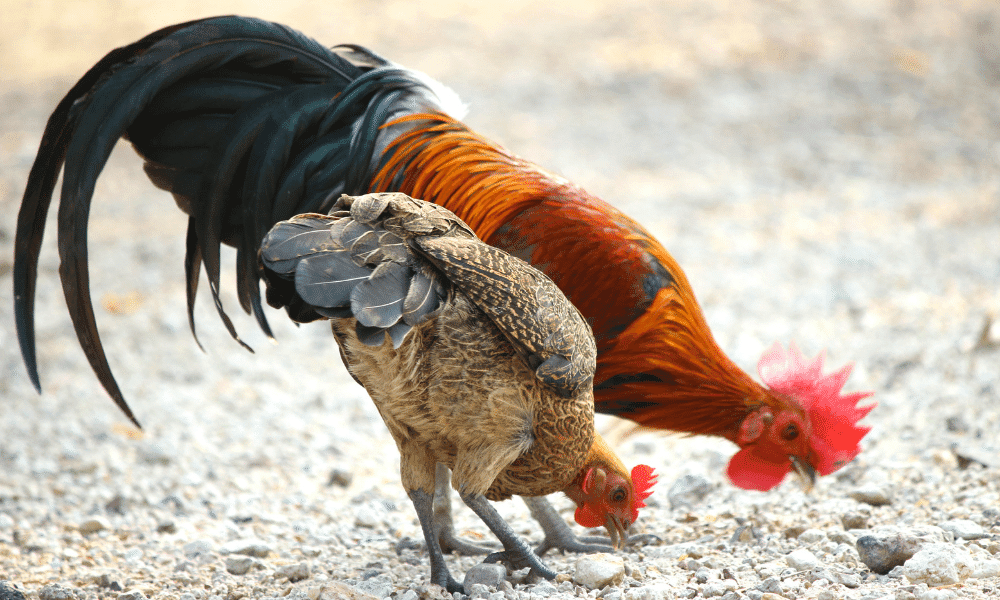In the animal kingdom, territory is everything. Just as you see lions prowling the savannah, you see cats prowling their neighborhood, sometimes even having disputes.
It’s clear that chickens know their home and the boundaries of their property, but are they actually territorial?
It’s a crucial question to ask if you are looking at introducing new members to your flock, or any new additions to your backyard farm.
Here’s whether chickens are territorial, how you can deal with it, and how to safely integrate new chickens to your existing flock.
Contents
Are Chickens Territorial?
Chickens certainly get to know their own space, never really leaving their backyard while free-ranging unless threatened or too curious.
But, just because chickens can be comfortable in their own home, does this really mean they are territorial?
Well, as a matter of fact, chickens are territorial creatures. They are strongly rooted in their social hierarchy they make within their flock, known as the pecking order.
Although a bit authoritarian by our standards, the pecking order works well in a flock of chickens. Bigger, stronger, and more aggressive chickens rank higher in the social hierarchy, while weak, small chickens rank lower.
It can sometimes even look like specific chickens are holdings grudges against others.
But in truth, this pecking order ensures stability and social cohesion in the flock. The established social order allows dominant chickens to manage the flock, eye an eye out for predators, and prevent dangerous infighting.
It’s because of this that chickens are territorial, and will naturally defend their rights when faced with new chickens integrating with their flock.
Are Roosters Territorial?

So, when it comes to a chicken’s territory, it’s usually the duties of the top-chicken who decides what (or who) is able to come close to the coop and flock. This is one of the leading reasons behind a roosters crow too, particularly if they are crowing throughout the day.
And when it comes to the top-chicken, it’s always the rooster. This means, roosters are almost always territorial, and will often stop at nothing to defend their space and flock.
Sure, this comes at a benefit for when there’s a predator attack from a red-tailed hawk or large snake, but when you’re trying to introduce new baby chicks to your rooster things can go south real fast.
Because of how territorial roosters can be, it’s so important to take gradual steps when you’re integrating any new chickens to your flock, or any other animal for that matter!
If you notice any kind of aggressive bottom or vent pecking, it’s important to separate your chickens!
Will Chickens Get Upset When Adding New Members To The Flock?
One of the biggest concerns when you’re thinking about adding more chickens to your existing flock is whether or not all the chickens will get along.
Although it depends on your flock’s behavior and experience with other chickens and animals, if the new chickens you’re introducing are generally submissive then you don’t usually get too many issues!
However, if one or some of your existing chickens are known to be a bit bossy, then you should expect some kind of resistance.
When I was younger and lived on a farm in New Zealand, one of our hen’s Rachel, took a whole 6 months to get used to the new young-ins we introduced.
The biggest lesson here is that it just takes a bit of time and patience. Gradual steps are always best when it comes to integrating new chickens into your flock.
How To Introduce New Chickens To Your Flock
After a flock interacts with their environment for some time, they begin to think of it as their territory and home. Generally speaking, chickens get more and more protective of their territory the closer it is to the coop.
This is vital information, and it plays a huge part in how you should introduce any new chickens to your flock, or other animals in your backyard. Particularly if there is a rooster involved!
Here are a few juicy tips and strategies to use when you’re introducing new chickens or baby chicks to your flock:
- First Introduction: To avoid any risk of righting breaking out, it’s best to introduce new flock members through a secure fence for the first time. You can keep your existing flock in their enclosure for example, and let the new flock into the yard.
- Integration: When your chickens appear relaxed around each other through any fencing ,which could take several days to weeks, you can begin to integrate them. Expect a few pecks here and there as they will establish the new pecking order.
- Know Your Chickens: If you know you have an overly aggressive rooster or hen, be sure to take extra care when you’re introducing new members of your flock. However, if your chickens are rather docile and well-mannered, introducing new flock members can be easy!
- Second Coop: If your existing flock and new chickens don’t seem to be getting along, then you can always look to set-up a permanent second coop. It’s better for the flock to all be in one space to fully integrate, but for safety sometimes it’s best to keep them apart. At least for a while until they learn to get along!
Conclusion
Chickens are territorial creatures, so when new members are added to the flock, things can get messy. Chickens take the pecking order seriously, so when new chickens are introduced, the flock will have to re-establish the social hierarchy, and fight for their positions.
So, start the introduction process slowly. Ease the new chickens in instead of leaving them to fend for themselves in the new flocks. If possible, place them in a small fenced-off area so the others will get used to their presence.
Eventually, they’ll understand that the new members aren’t too much of a threat and your flock will become one.
